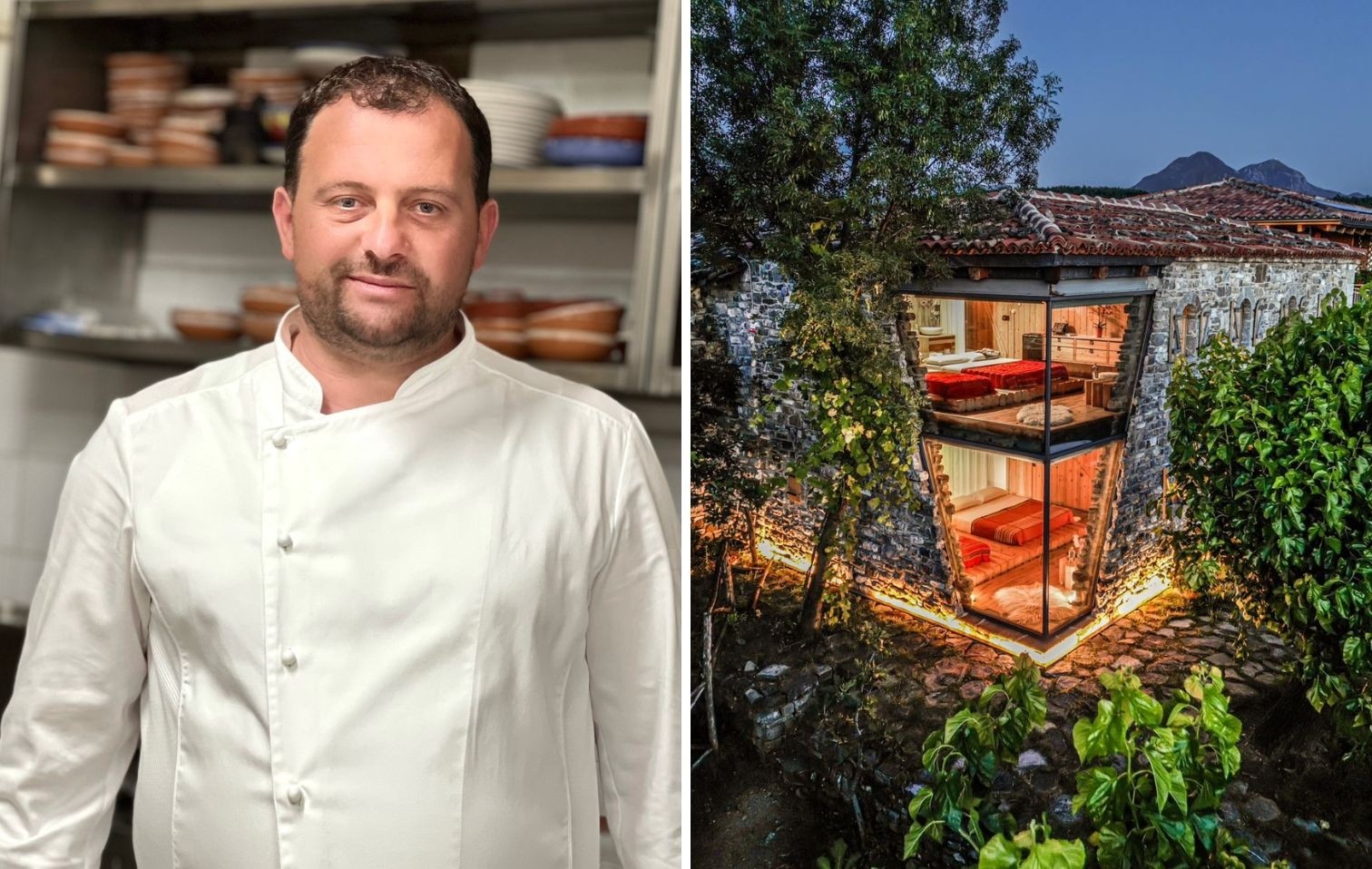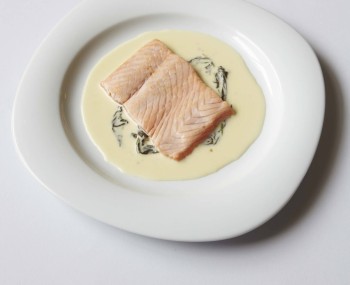"Thjeshtë deri në madhështi" in Albanian means "Simple to Greatness", a phrase that fully embodies the identity of the Prenga family and their gastro-cultural haven, Mrizi i Zanave.
The story
"Mrizi" means "to rest at noon," and this pastoral word is also the title of a work by Gjergj Fishta, considered the most influential Albanian writer of the 20th century. Born not far from here in Fishtë, he wrote "Mrizi i Zanave," or "The Noon of the Fairies."
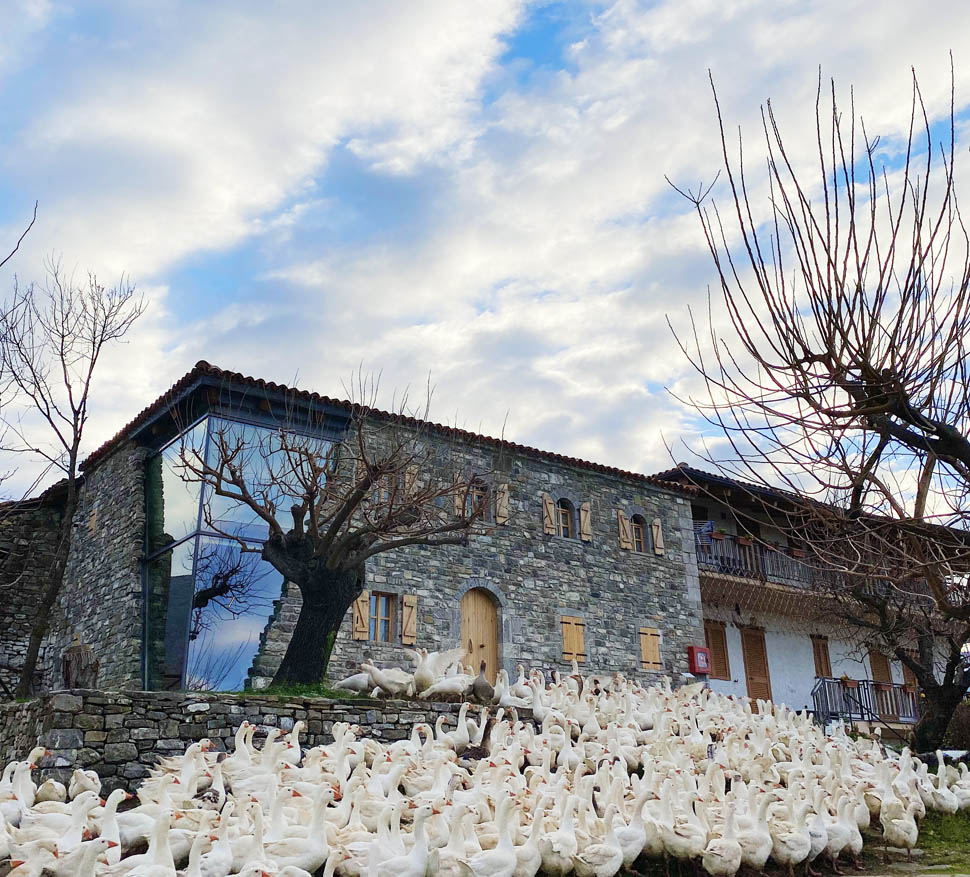
I had been wanting to meet Altin Prenga for some time and learn about what he and his extensive family have created in just over a decade. They form a true community with deep farming roots, one that hasn't abandoned its origins and is now bringing honor to Albania. I reached Mrizi i Zanave agriturismo among the hills of Fishtë, just over an hour from Tirana. Here, Altin is dedicated to revitalizing Albanian food and wine culture, starting with the farmer community - in other words, the future that was denied to them during the mad dictatorship that lasted until 1991.
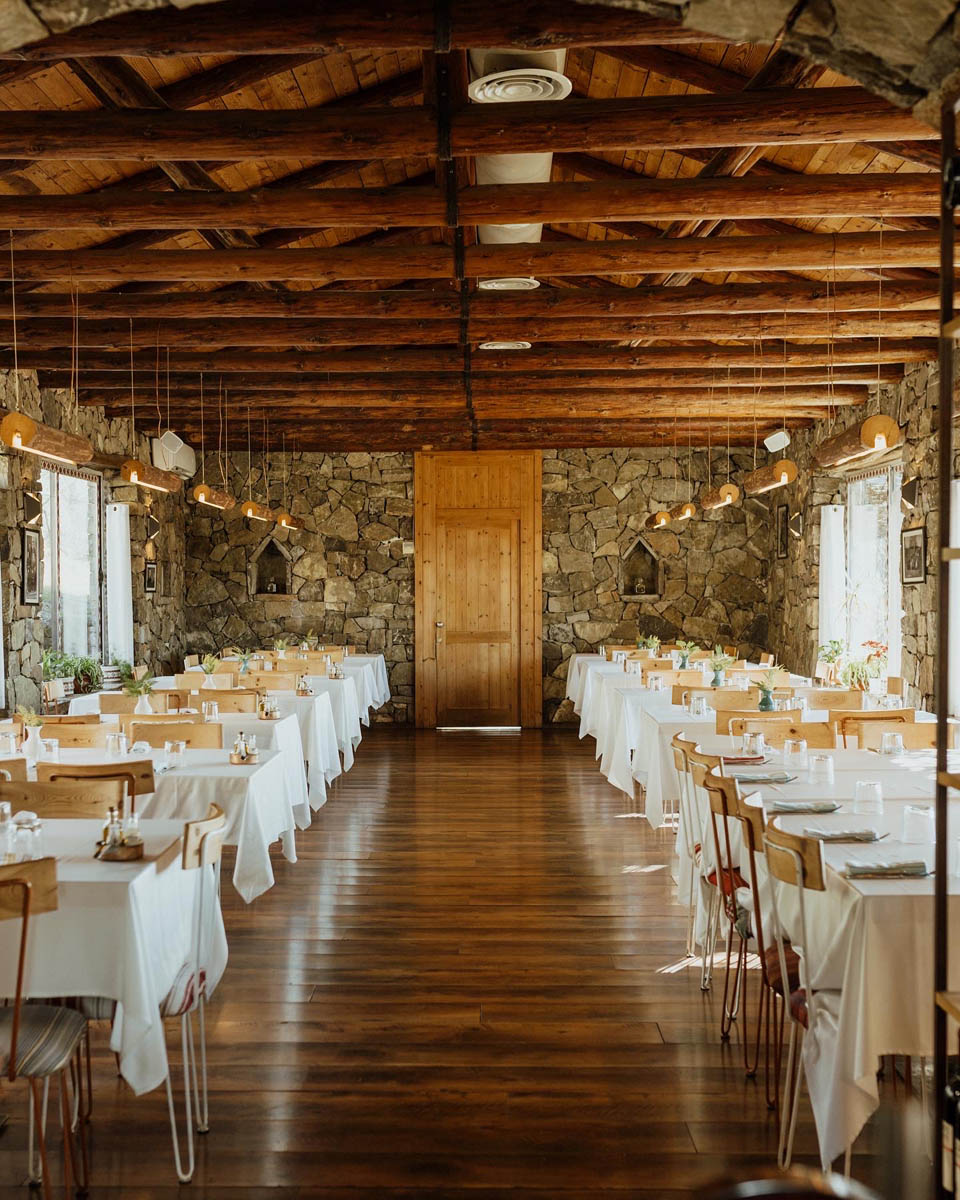
Mrizi i Zanave Agriturismo is about thirty kilometers from Lake Shkodra and sixty from Mother Teresa Tirana International Airport, the nearest one. Today, it represents an institution in the land of eagles and has become a symbol of taste and authenticity. Altin Prenga, a true national hero, is now taking care of his land and restoring the dignity it deserves. This authentic agriturismo produces most of the menu's ingredients, along with a virtuous network of over 400 local families supplying the restaurant year-round, and over 100 predominantly young employees.
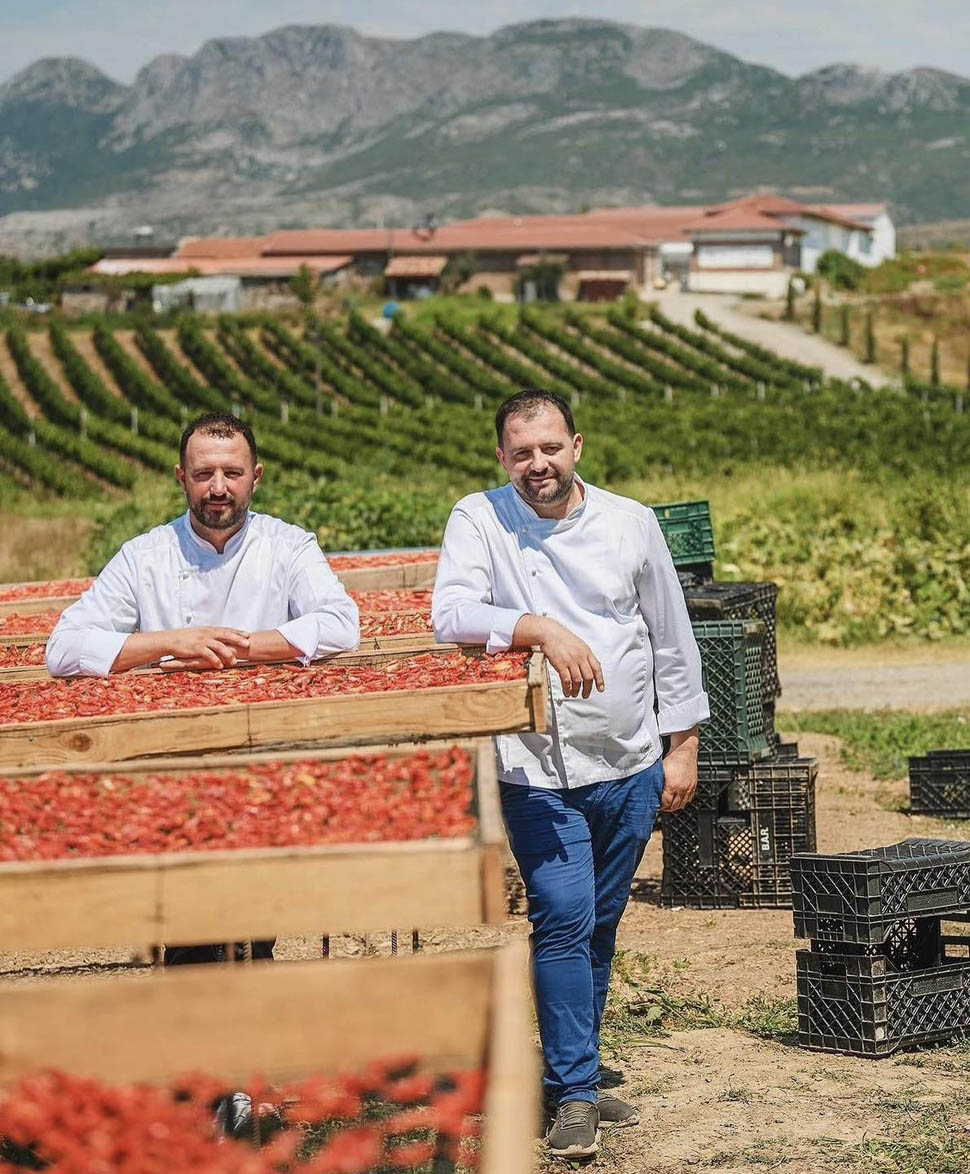
"The right to be farmers was denied to us, but we have reclaimed it. In all the former communist countries, civilization was altered and violated. In Italy, the entire economy was built on the land, but unfortunately, not here. We were denied it with insane methods and ideologies. We were always pushed toward quantity and standardization; everything had to be the same for everyone. But a state that denies its people the first step, agriculture and farmer culture, can only regress. After every dictatorship, identity is lost, and the only way to rediscover it is to return to work and think in farmer’s terms, with a local, as much as possible, identity-based approach."
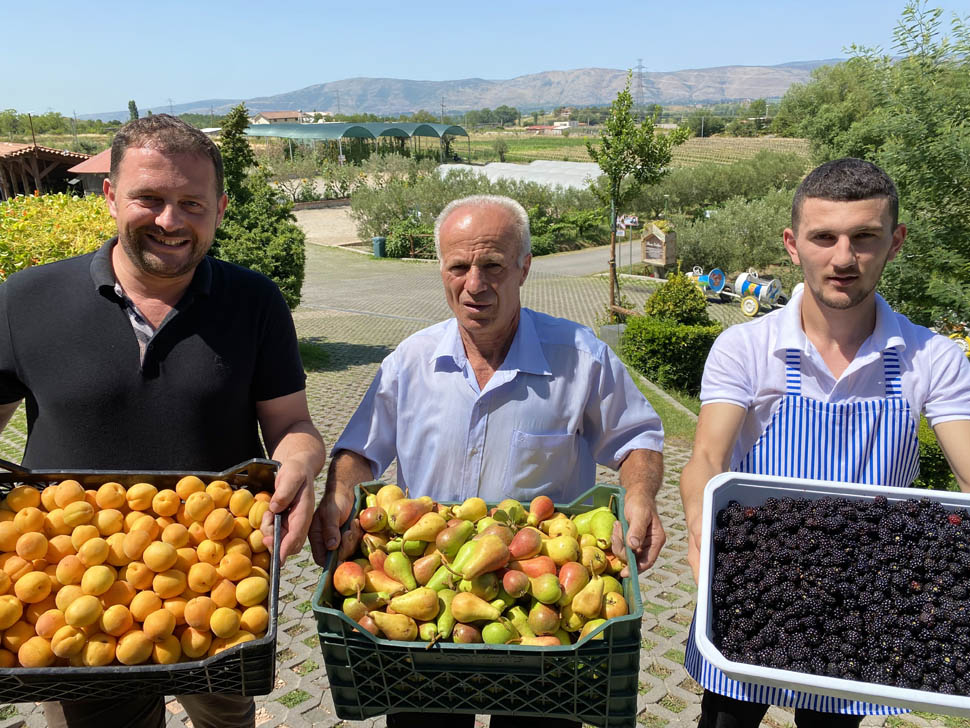
These are the harsh yet righteous words of a "hero of the homeland," just over forty, appreciated and respected by many compatriots who he's trying to lead and, most importantly, form a united front with, based on a common goal: to restore Albania's soul and heart.
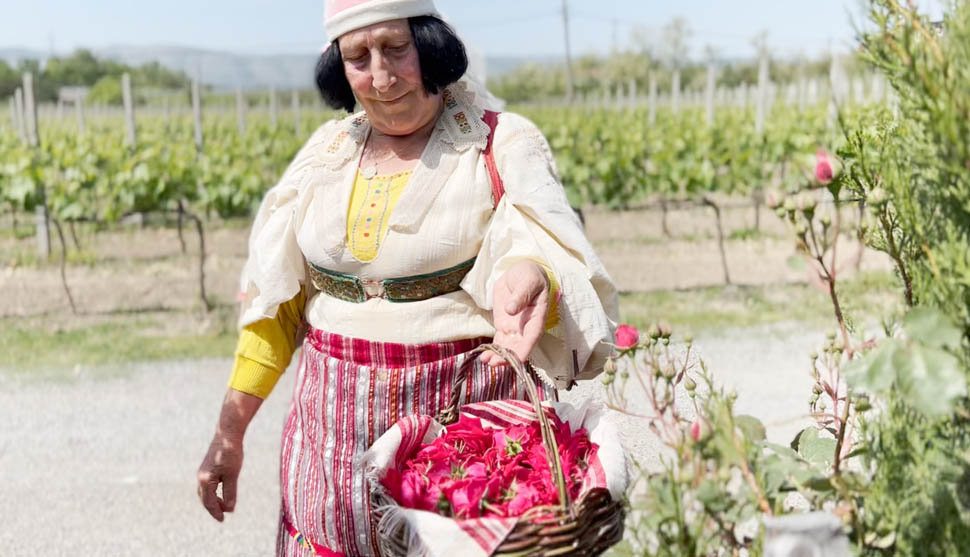
The establishment
Altin, who is part chef, part agricultural entrepreneur, and certainly has the tough spirit of a shepherd, is doing this in the best and most authentic way possible. He's operating a successful agritourism and spreading his influence throughout the surrounding countryside. Part of the structure, which was once a political prison, has now become a set of spaces for a food system that supplies the restaurant. These are the places that deserve attention and interest. They started with wine because it's the most important product, at least in farmers' culture. They have a winery with three and a half hectares of vineyards, ten-year-old vines with the first harvest in 2019, and 30 serious contributors whom Altin relies on.
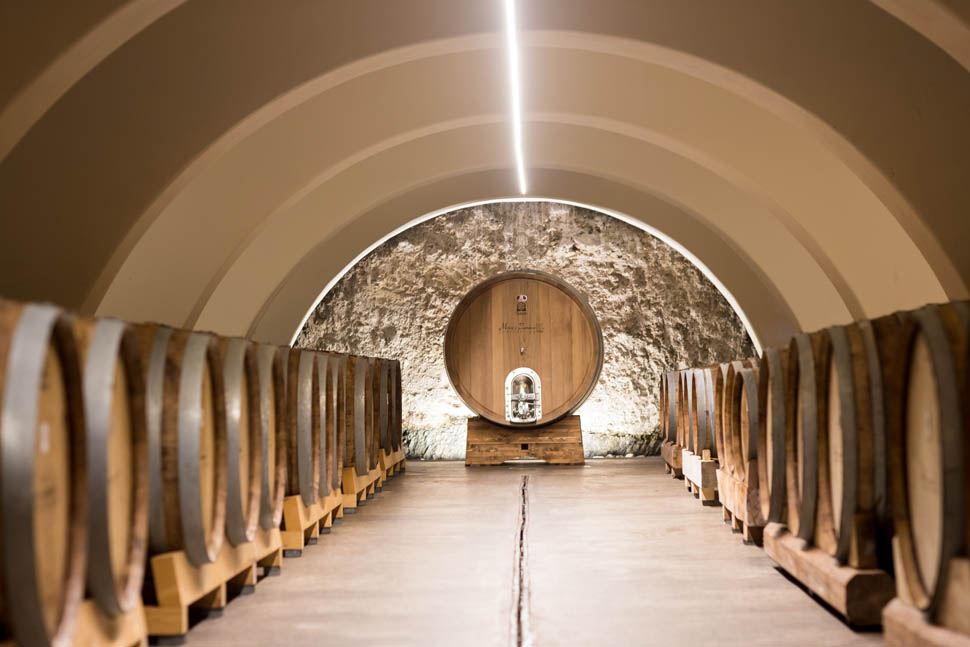
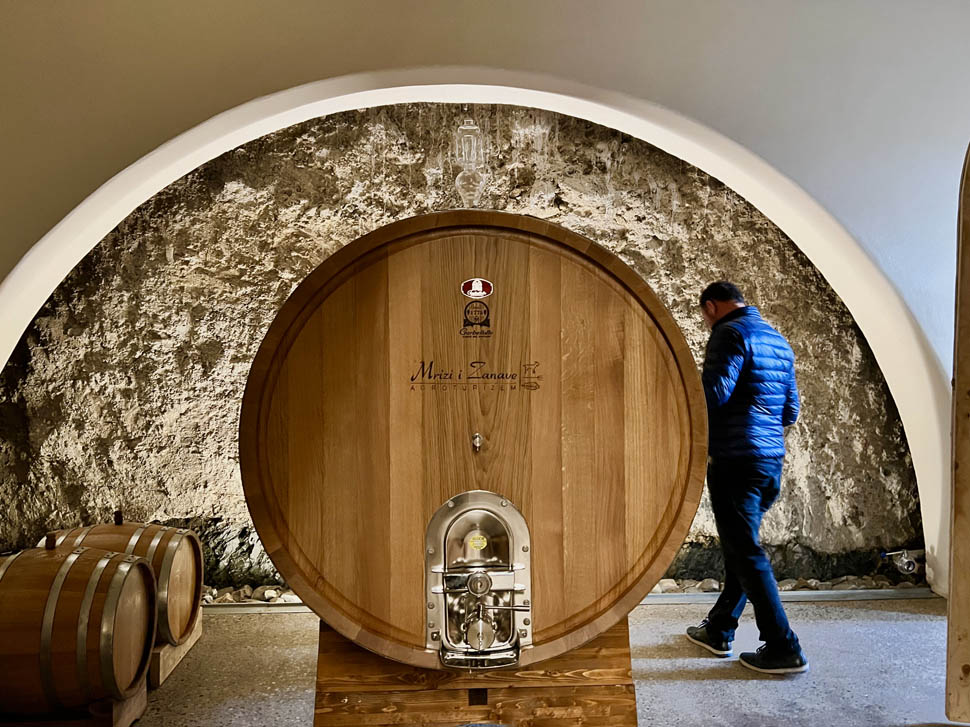
The produced wines are diverse, and great importance lies in the two native grape varieties, cultivated and vinified with merit: the Shesh white grape (of which there will also be a reserve version in Garbellotto barrels) and the Kallmet black grape, enhancing the all-Albanian flavor and aroma profile. Other labels include blends that create wines that are not too complex but certainly straightforward and unquestionably clean. The flagship is the local prince, Kallmet, which vaguely resembles Nebbiolo. Altin and his brother Anton are investing a lot in it, even wanting to produce a version with 50% dried grapes for more depth. The tasting of the bottling that took place three years ago and requires at least as many years of aging was more than convincing.

But it's not just wine. In the noble land of Mrizi i Zanave, there are orchards, vegetables, olives, excellent sun-dried tomatoes collected in jars, and special jams, including one made from the cones of mugo pine, with ancient methods and dizzying flavors. There is also a small dairy where Altin's team produces interesting goat and cow cheeses, made from raw milk in contrast to the soulless cheese blocks produced before and unfortunately still during the dictatorship. Cheeses are aged in grape pomace, with nuts, chili, fresh and semi-matured, all with raw milk supplied by the local community, creating a virtuous and sustainable network for everyone.
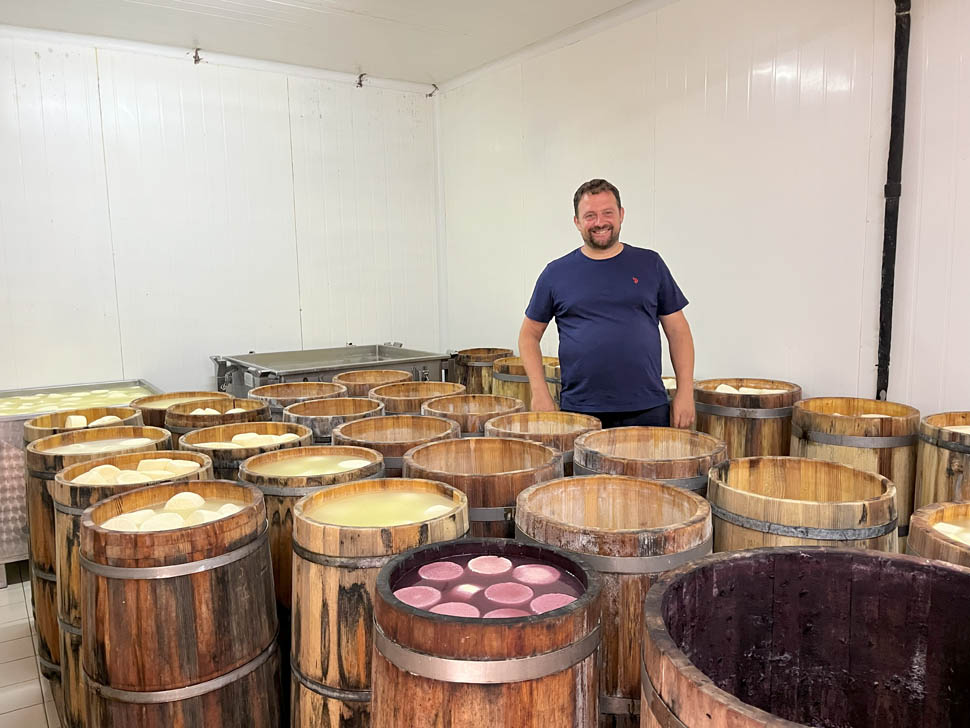
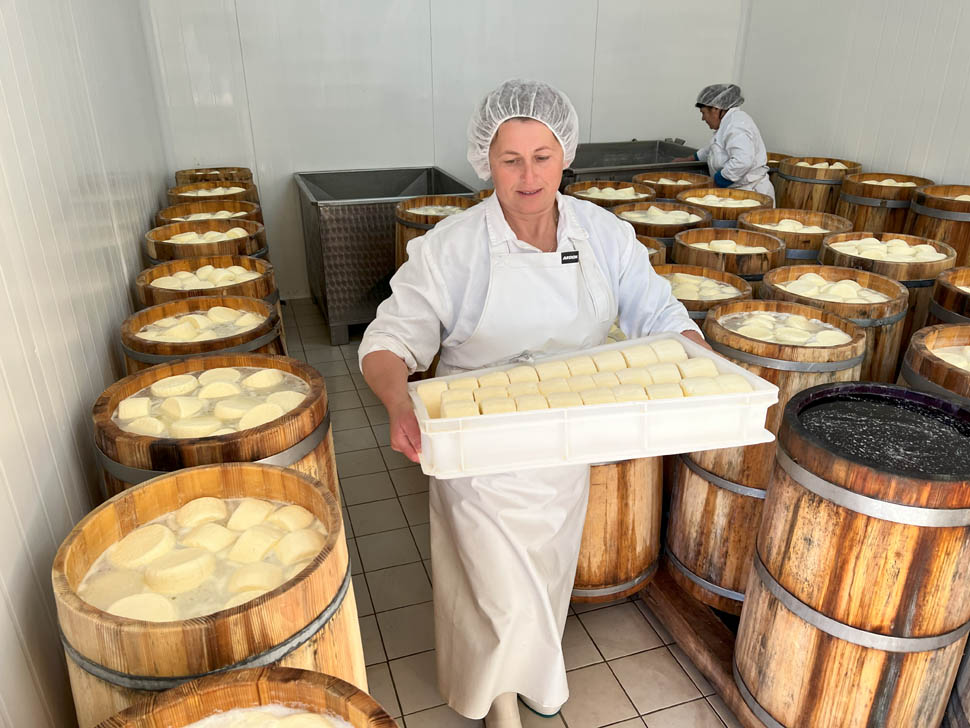
The same goes for the cured meats, which the Prenga family matures with criteria and culture (learned in Italy during the decade that the father and then the sons spent in Trentino) in rooms filled with beech smoke. There are also flours obtained from stone milling. They have their own animals too; a large and friendly family of goats, also used during school visits, introducing children to a teaching farm, in contrast to the thousands of geese that go autonomously every day to a nearby artificial lake to find refreshment. This is thanks to a vital water system created to try to cultivate rice, another noble crop that Altin wanted, and he's the only producer of it in the country.
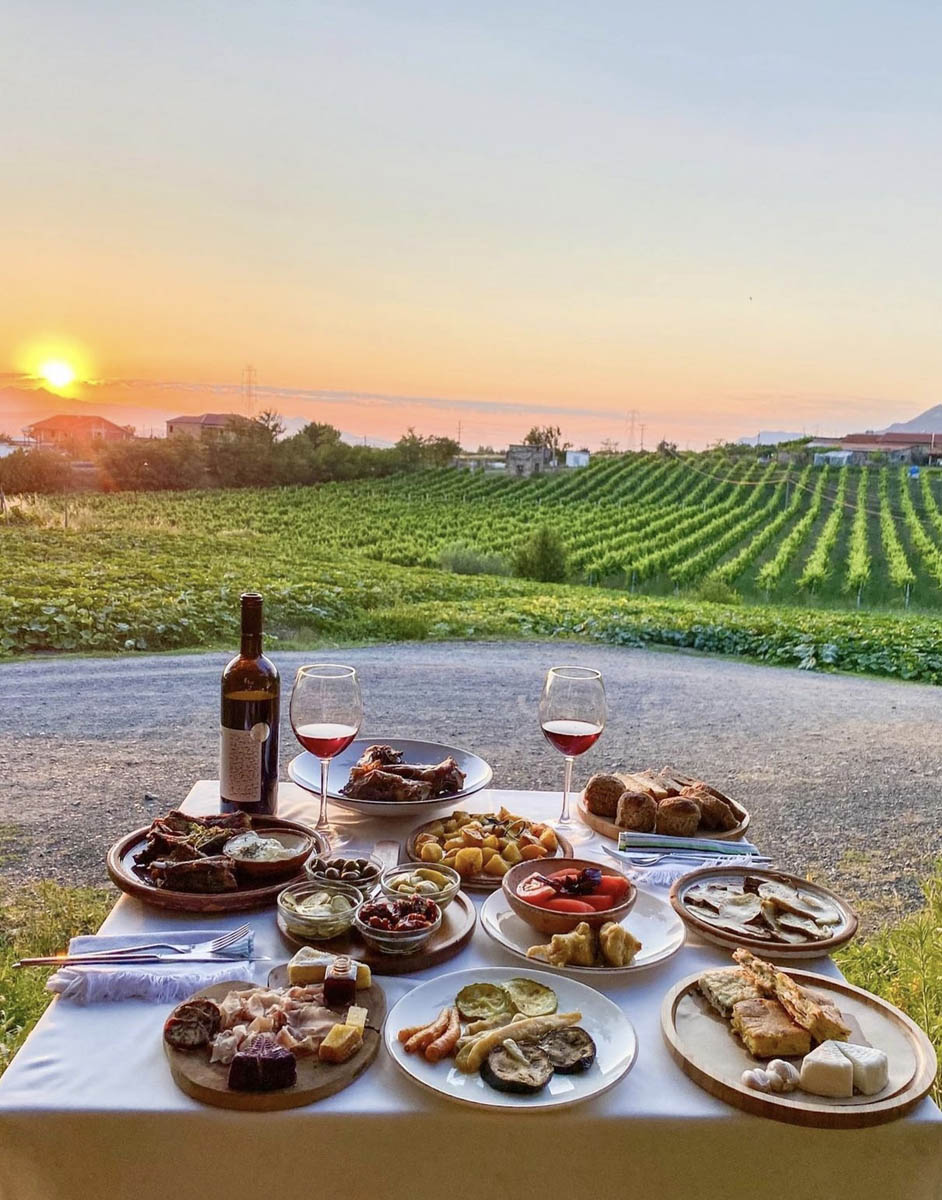
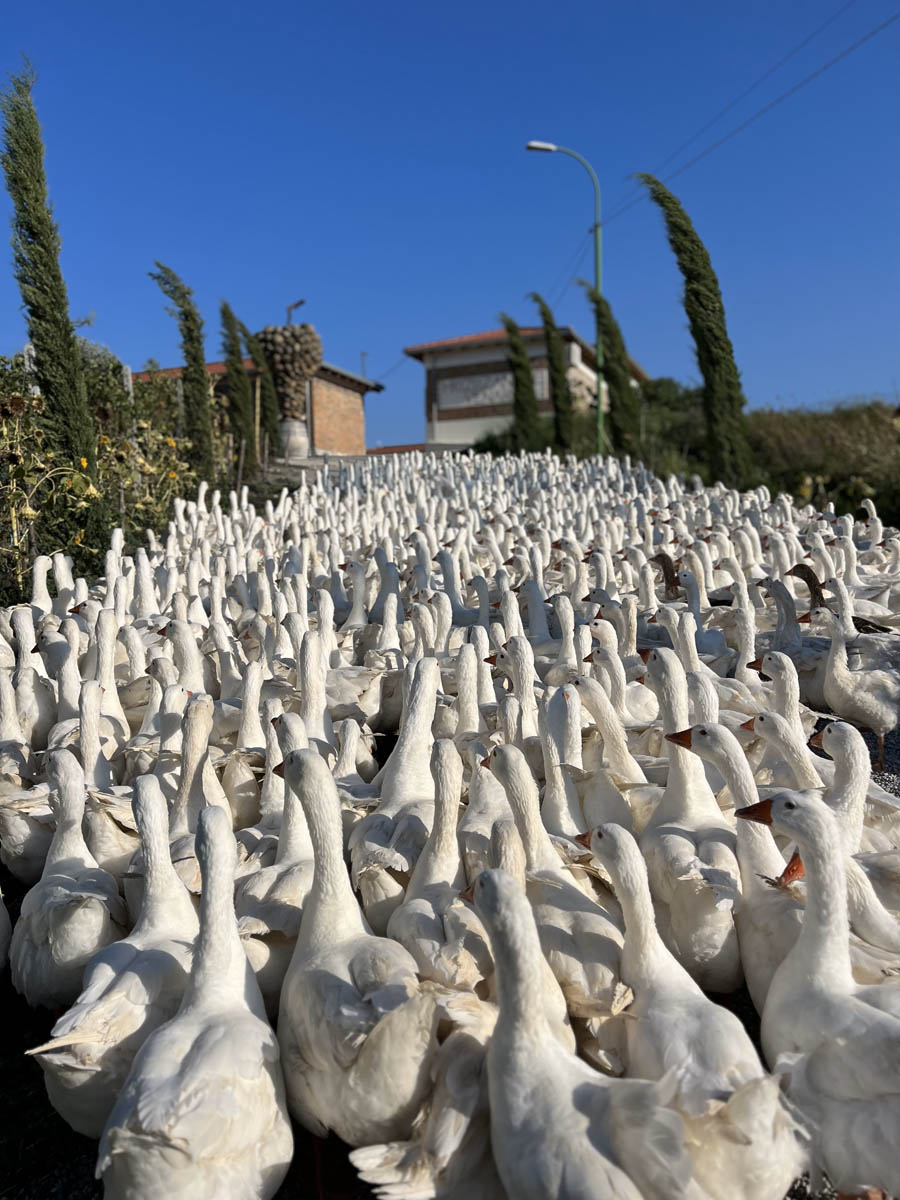
Here, everything is vintage, from the working methods to the approach. Nothing exists without a farmer’s reference. The five hundred people who book every day find a pleasant place to spend a few hours of high and simple pleasure in an extended garden with a roof of plants and an indoor area on the upper floor. But, most importantly, they find recipes that remain unchanged, harking back to the tastes of the past - rural, genuine, substantial, and, above all, authentic.
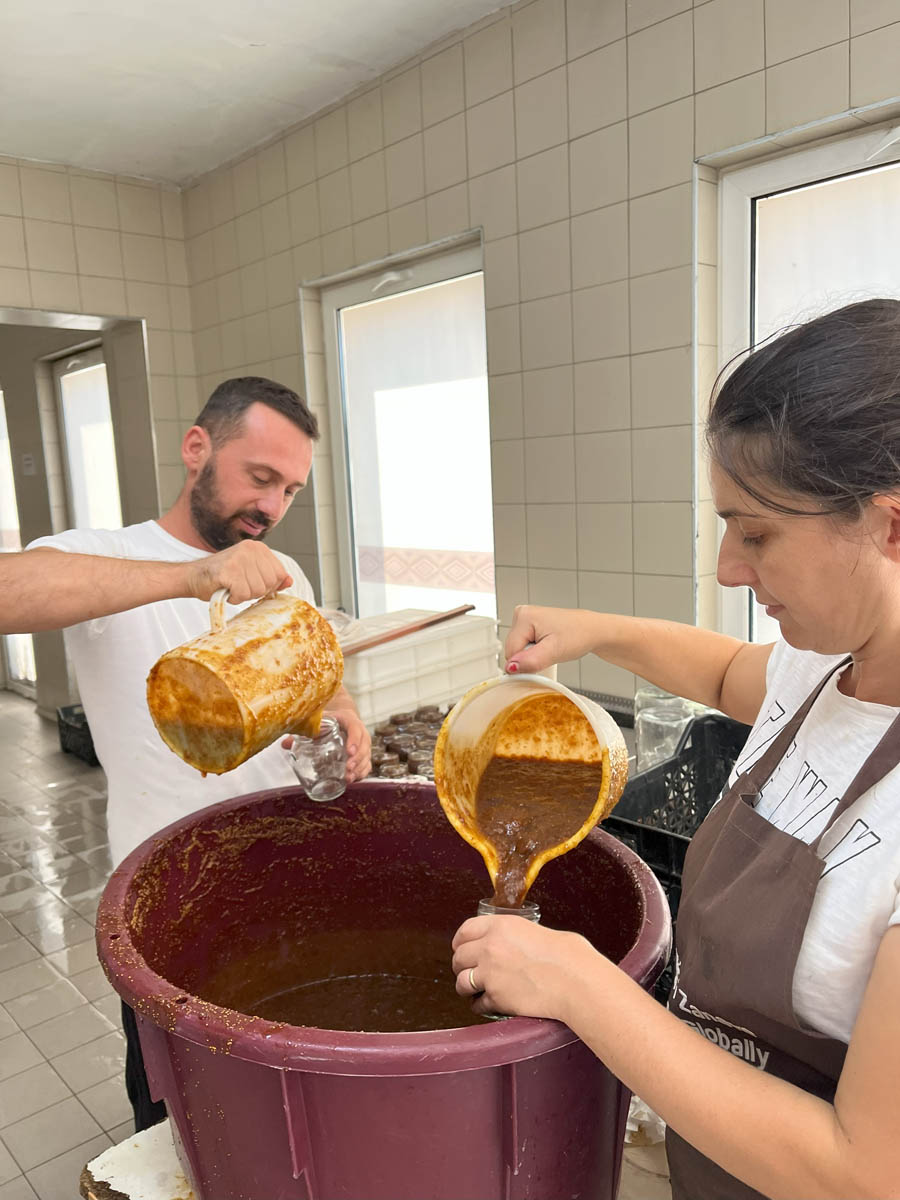
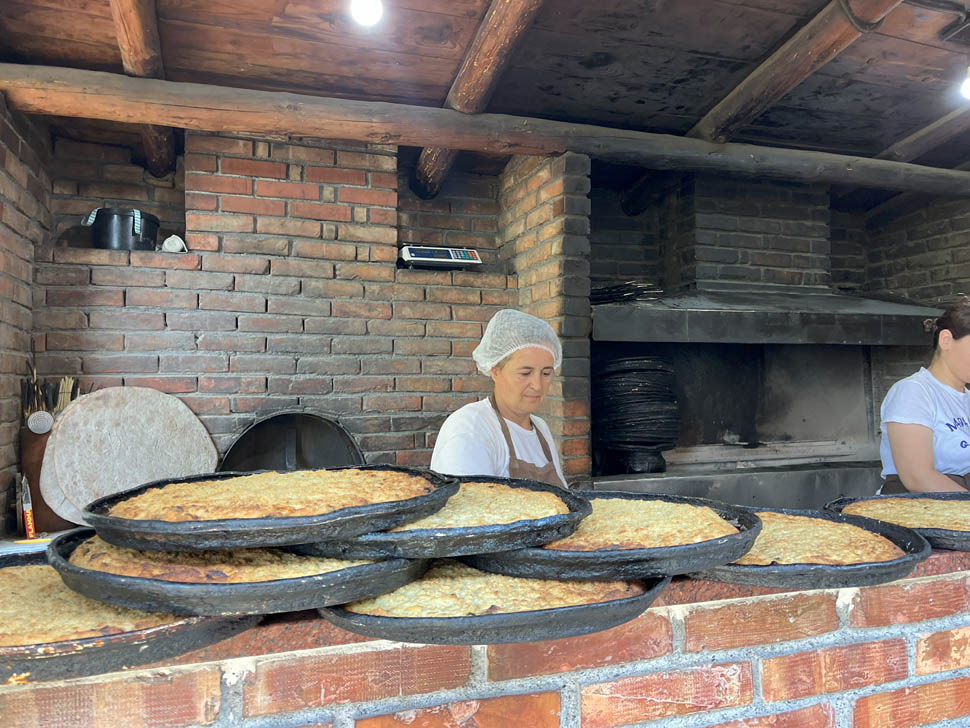
The Gastronomic Offering
The dinner featuring goat cheeses, cured meats, the typical burek, sumptuous kid goat, duck, and pork, was remarkable. "Symbolically, what represents me the most is the selection of burek with peasant cheese, which reminds me of Easter, forbidden during the dictatorship. They were blessed a week before, and there was garlic too, and you had to be very careful with the smells because the punishment for celebrating a feast was prison. And then the versions with pumpkin and sour cream or with leeks and potatoes - we could never do without burek," Altin happily says, but with a hint of a bitter smile.
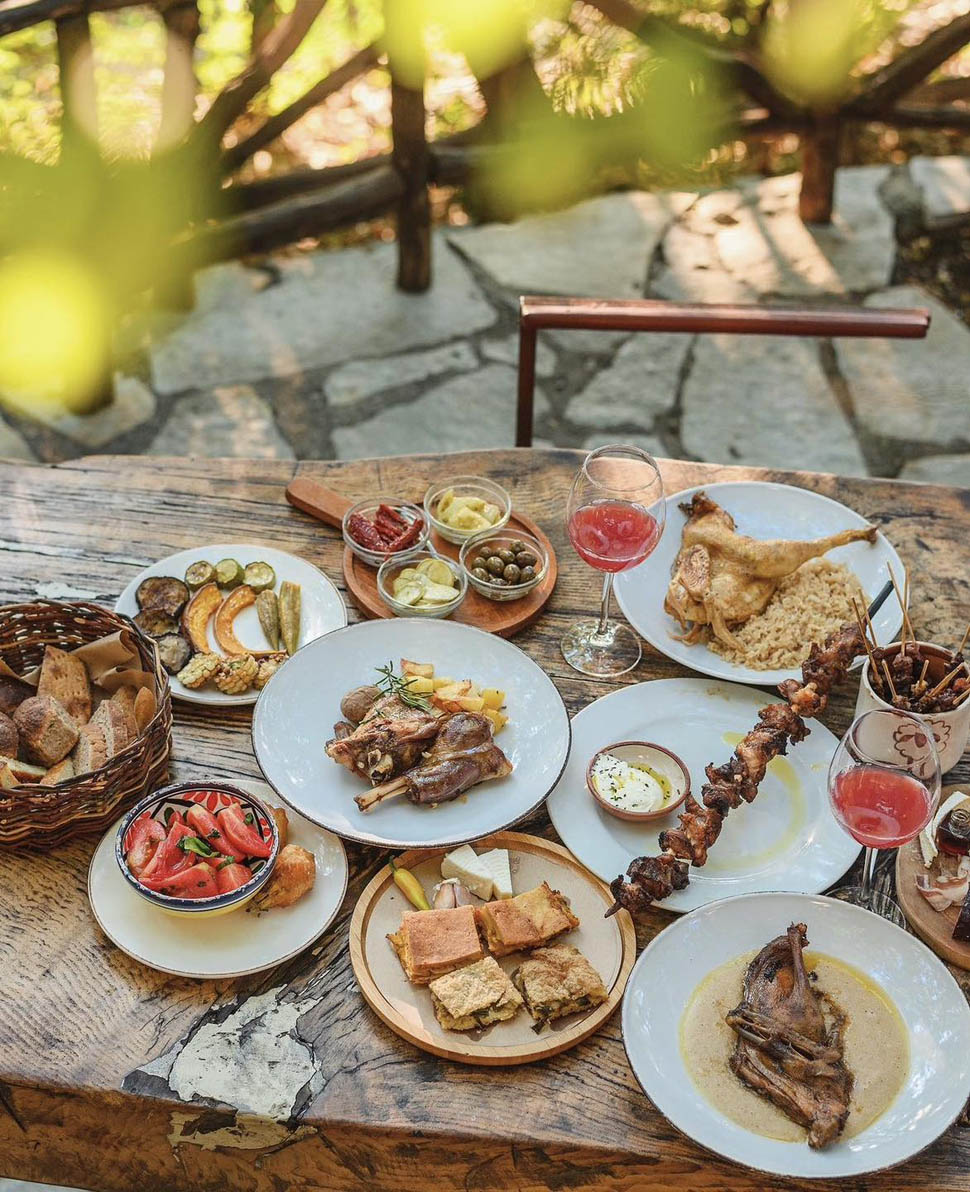
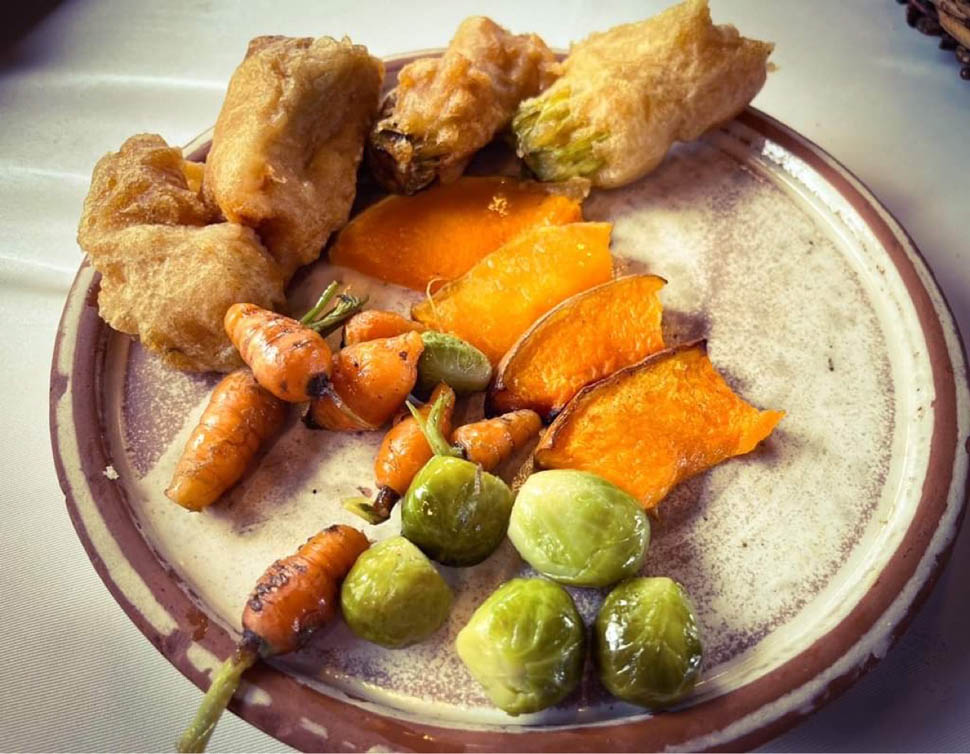
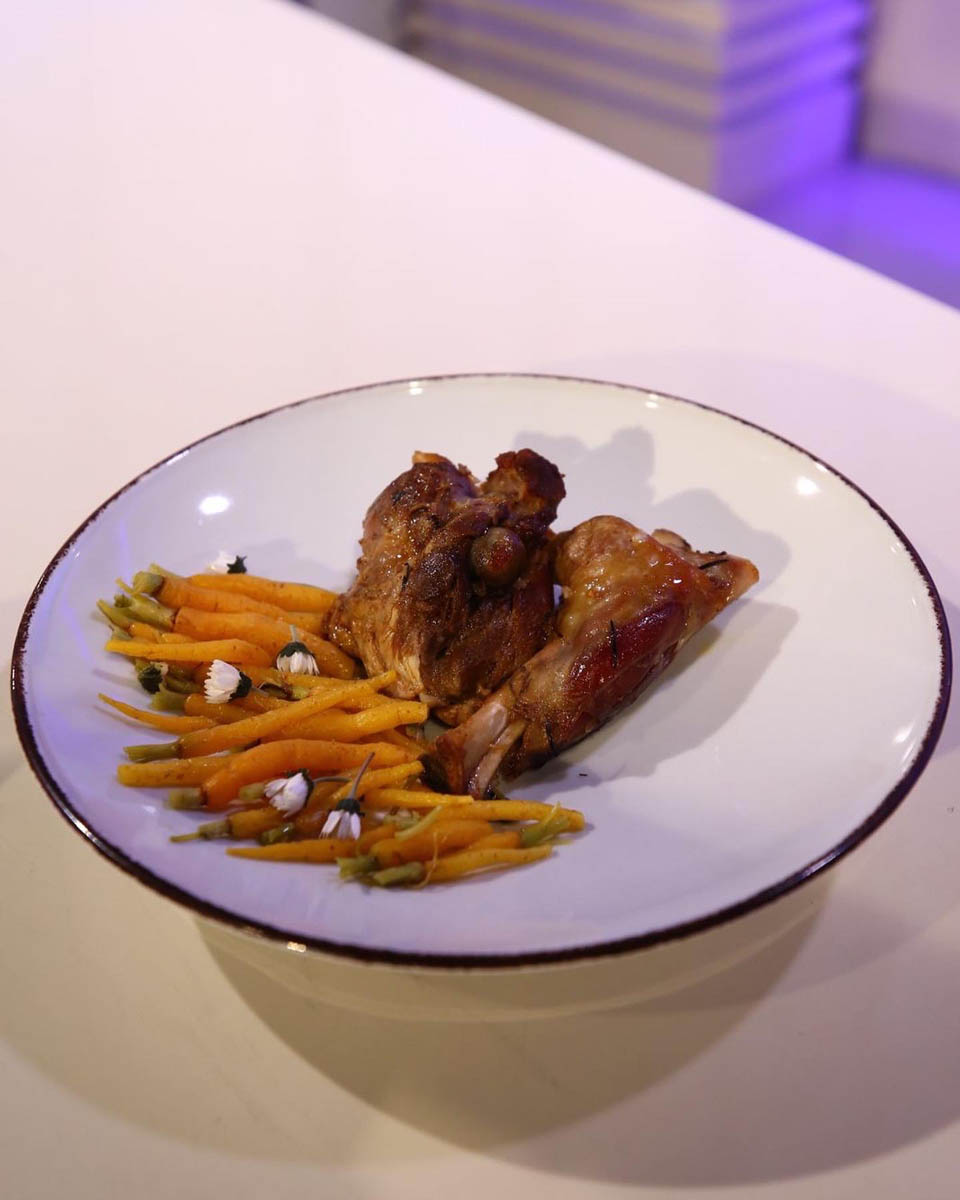
"Grilled pork represents us for its simplicity and honors the sweat of the farmers (skewered as krane); The cabbage soup in a clay pot with smoked pork, a dish I grew up with, is another must. My grandmother always placed it near the fireplace, and we grew up with these aromas filling the house. Finally, the sheep meat cooked with yogurt, the typical 'tavë kosi' from the city of Elbasan, a traditional dish that, like others, is part of our Albanian heritage. I've also tried to revive it and make it known to everyone through the local Slow Food chapters in Albania, which I'm a part of, to contribute to changing the food system and shaping a better future," Altin says.
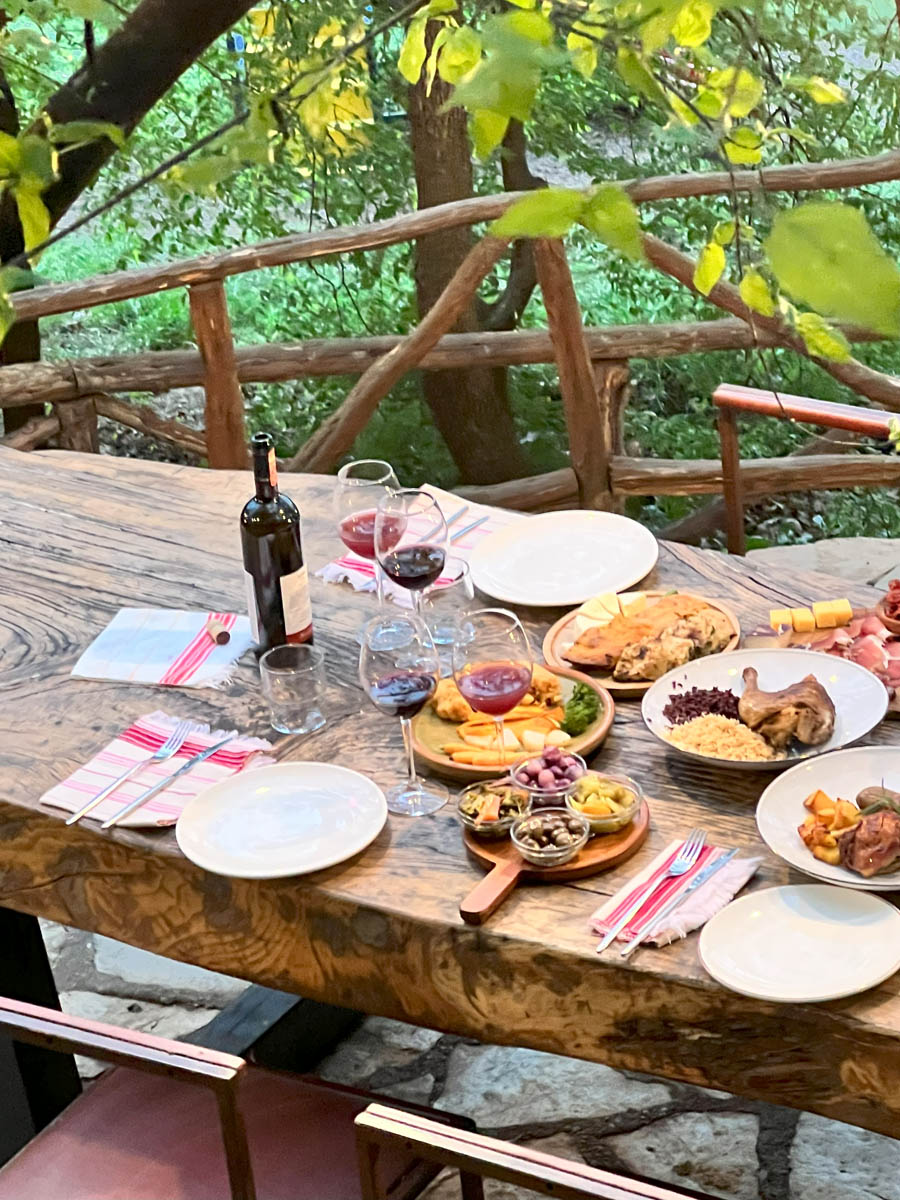
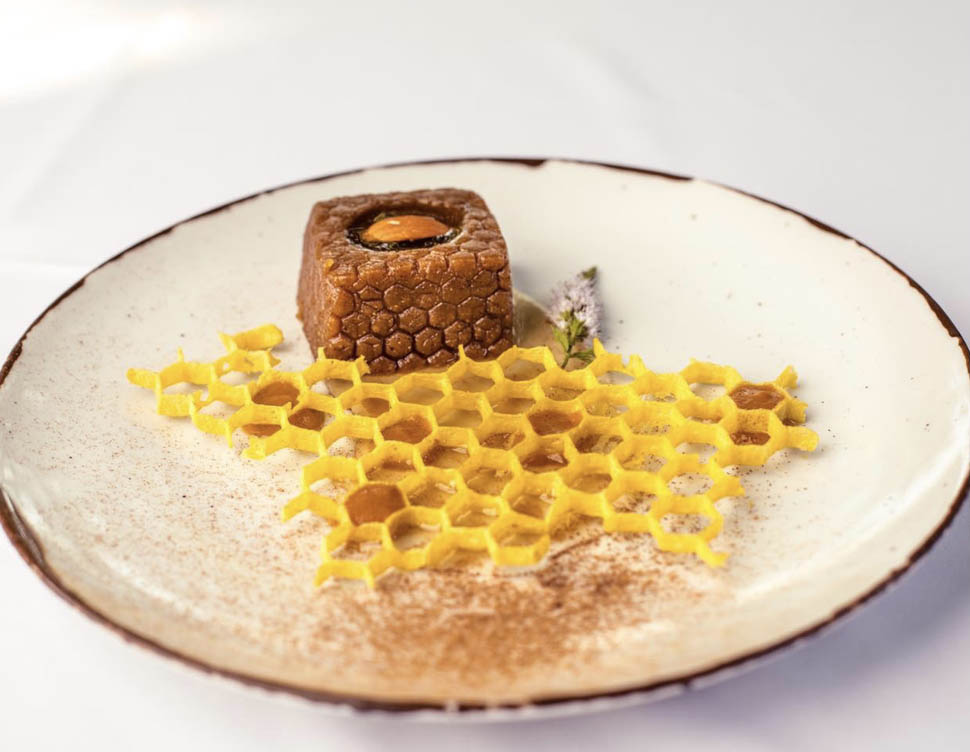
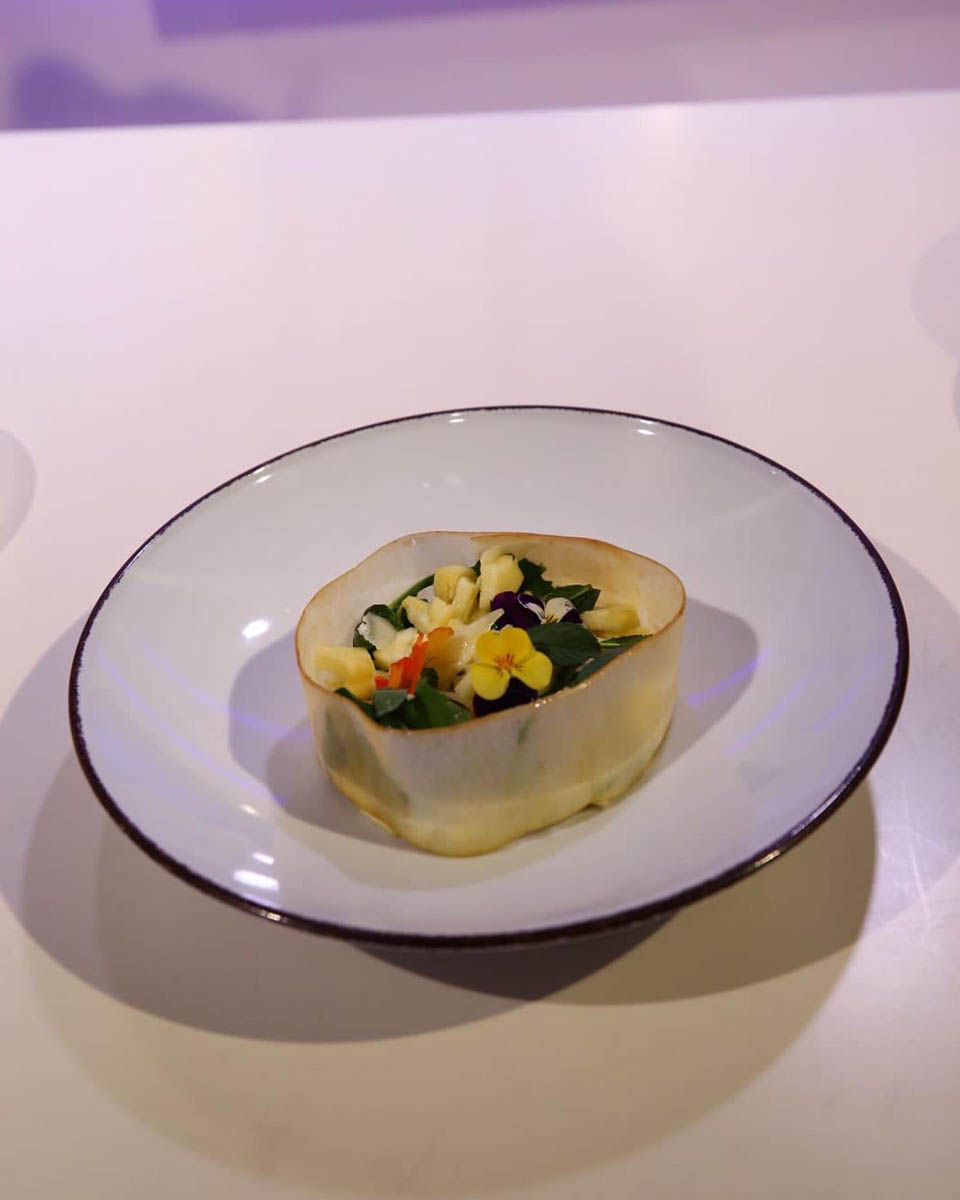
Through love and incorruptibility, this small northern village has become a point of reference for many customers, both Albanian and foreign. It has also become an inspiration for local producers and restaurateurs who share the same philosophy and have found an example to follow in the Prenga family. In a culinary world often false and corrupt, what matters if not the loyalty and goodness of the few people who remain true to the industry? Oh, and don't forget to make a reservation in advance, especially if you want to stay overnight in one of the beautiful wooden rooms of this Albanian gastronomic sanctuary.
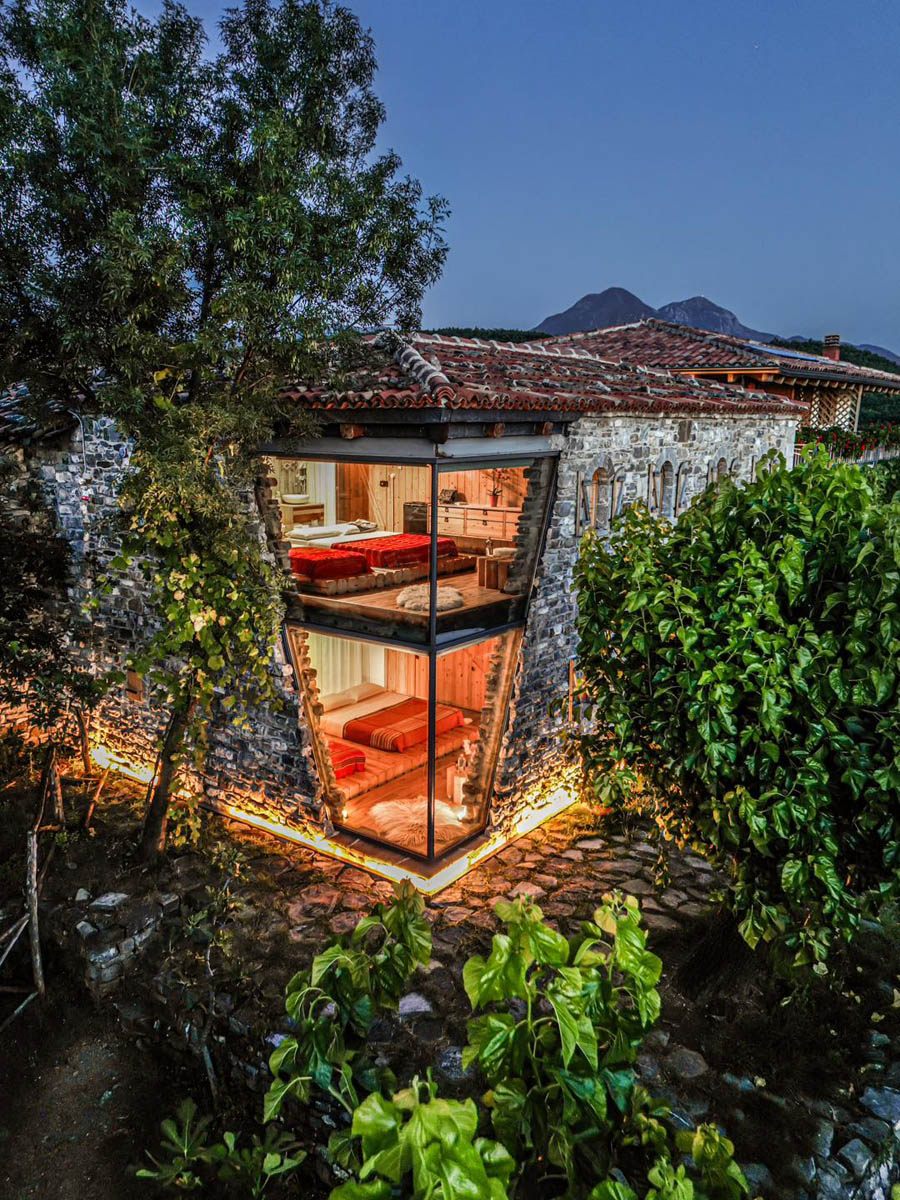
Address
Mrizi i Zanave Agroturizëm
Rruga "Lezhë - Vau i Dejës", Fishtë, Lezhë 4505, Albania
